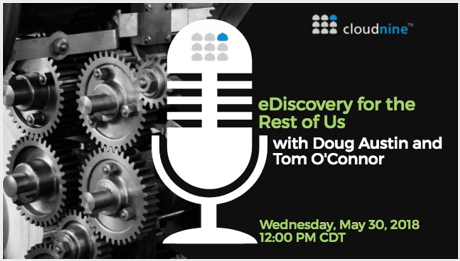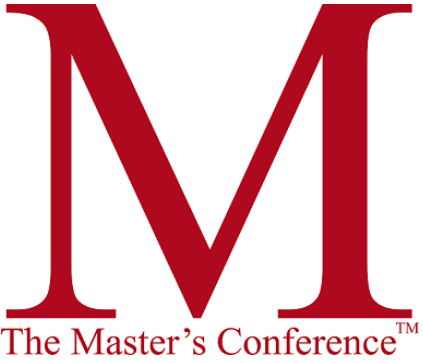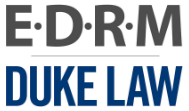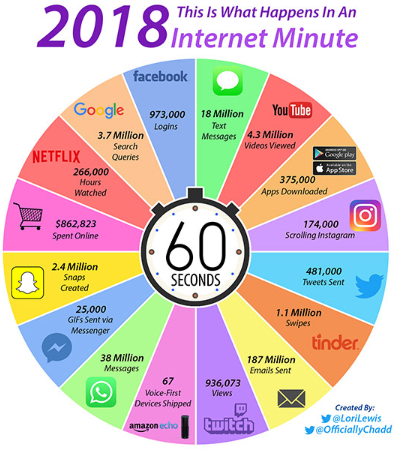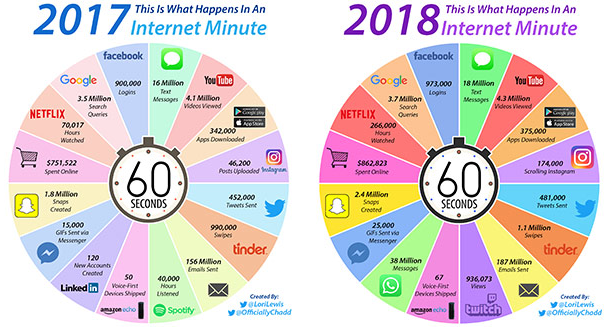eDiscovery for the Rest of Us: eDiscovery Webcasts
Does it seem like eDiscovery technology today is only for the “mega-firms” and “mega-cases”? What about for the “rest of us”? Are there solutions for the small firms and cases too? What does the average lawyer need to know about eDiscovery today and how to select a solution that’s right for them? We will discuss these and other questions in a webcast at the end of the month.
On Wednesday, May 30 at noon CST (1:00pm EST, 10:00am PST), CloudNine will conduct the webcast eDiscovery for the Rest of Us. In this one-hour webcast that’s CLE-approved in selected states, we will discuss what lawyers need to know about eDiscovery, the various sources of data to consider, and the types of technology solutions to consider to make an informed decision and get started using technology to simplify the discovery process. Topics include:
- How Automation is Affecting All Industries, including eDiscovery
- Drivers for eDiscovery Automation Today
- Challenges from Various Sources of ESI Data
- Ethical Duties and Rules for Managing Discovery
- Getting Data Through the Process Efficiently
- Small Case Examples: Ernie and EDna
- Key Components of an eDiscovery Solution
- Types of Tools to Consider
- Recommendations for Getting Started
As always, I’ll be presenting the webcast, along with Tom O’Connor, who is currently writing an article on the topic that we plan to publish on the blog in the next couple of weeks. To register for it, click here. Even if you can’t make it, go ahead and register to get a link to the slides and to the recording of the webcast (if you want to check it out later). If you want to know what eDiscovery solution options there within an affordable budget, this is the webcast for you! It’s not a “Festivus for the rest of us”, it’s eDiscovery for the rest of us!
So, what do you think? Do you feel like you can’t afford eDiscovery technology? Please share any comments you might have or if you’d like to know more about a particular topic.

Sponsor: This blog is sponsored by CloudNine, which is a data and legal discovery technology company with proven expertise in simplifying and automating the discovery of data for audits, investigations, and litigation. Used by legal and business customers worldwide including more than 50 of the top 250 Am Law firms and many of the world’s leading corporations, CloudNine’s eDiscovery automation software and services help customers gain insight and intelligence on electronic data.
Disclaimer: The views represented herein are exclusively the views of the author, and do not necessarily represent the views held by CloudNine. eDiscovery Daily is made available by CloudNine solely for educational purposes to provide general information about general eDiscovery principles and not to provide specific legal advice applicable to any particular circumstance. eDiscovery Daily should not be used as a substitute for competent legal advice from a lawyer you have retained and who has agreed to represent you.

